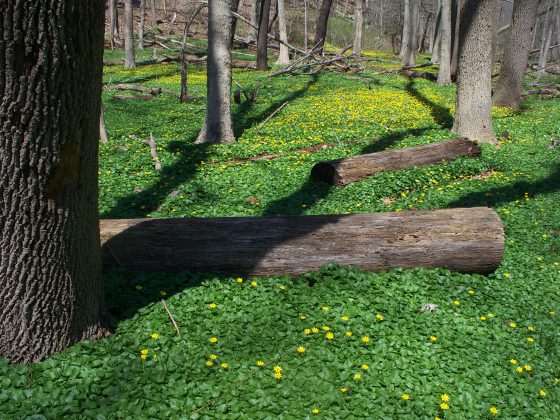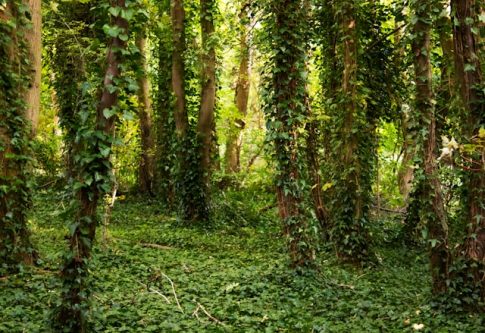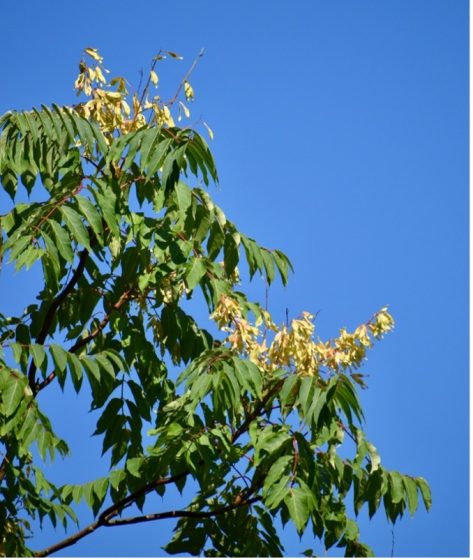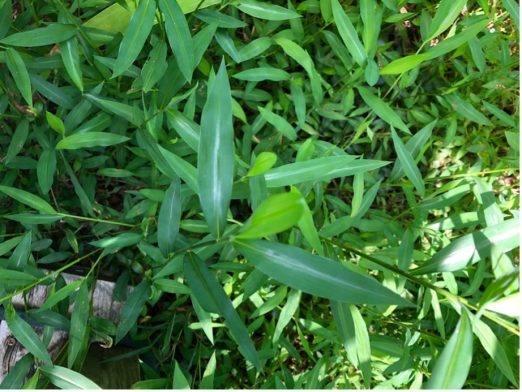
Are you aware that invasive plants destroy the ecosystems we are trying to protect by planting natives? Invasive trees, shrubs, vines, grasses and flowers crowd out forest ecosystems, out-compete natives, take over native plant habitats, and inhibit native plants from growing.
The understory of a forest is very important for insects and other species at the bottom of the food chain. Invasives can weaken the entire ecosystem. They often emerge earlier in the spring and push natives out through fast reproduction. This limits habitat for native wildlife and disrupts the food chain.
Other ecological impacts of invasives include:
- Change availability of water, light, and nutrients
- Disrupt native plant-pollinator relationships
- Act as a host for plant pathogens
- Replace nutritious native plant foods with lower quality sources
- Kill trees and shrubs through girdling
- Increase rate of soil erosion


One common invasive you probably will find in your yard is Garlic Mustard. Garlic mustard’s roots release chemicals that disrupt the underground network of fungi that connect nutrients between native plants and trees, inhibiting their growth. Here is a sad fact: when butterflies lay eggs on garlic mustard, they either die or the caterpillars don’t grow properly.





At this time of climate disruption, gardeners are important environmental stewards. What’s lurking in your yard? Here’s a list of invasives I’ve found and removed on my property:
- Garlic mustard
- Ground ivy
- Sticky weed
- Oriental bittersweet
- Japanese stiltgrass
- Lesser celandine
- Norway maple
- Japanese barberry
- Multiflora rose
- Tree of Heaven
- Winged euonymus
- Privet hedge
- Shrub honeysuckle

What You Can Do
- Explore Pennsylvania Department of Conservation & Natural Resources to find a complete list of invasives.
- Learn to identify invasive plants
- Plant natives to keep the ecosystem on your property healthy so invasives will have less opportunity to invade.
- Minimize ground disturbance to lessen invasive spread. Invasive plants thrive on bare soil.
- Check your property often for invasives to find problem plants before they take hold.
- Do not use herbicides. Remove invasives by digging or hand weeding when they are still small and easily controllable. Do not let them go to seed.
- Be sure to remove ground ivy from your trees. It will kill the tree.

Leave a Reply